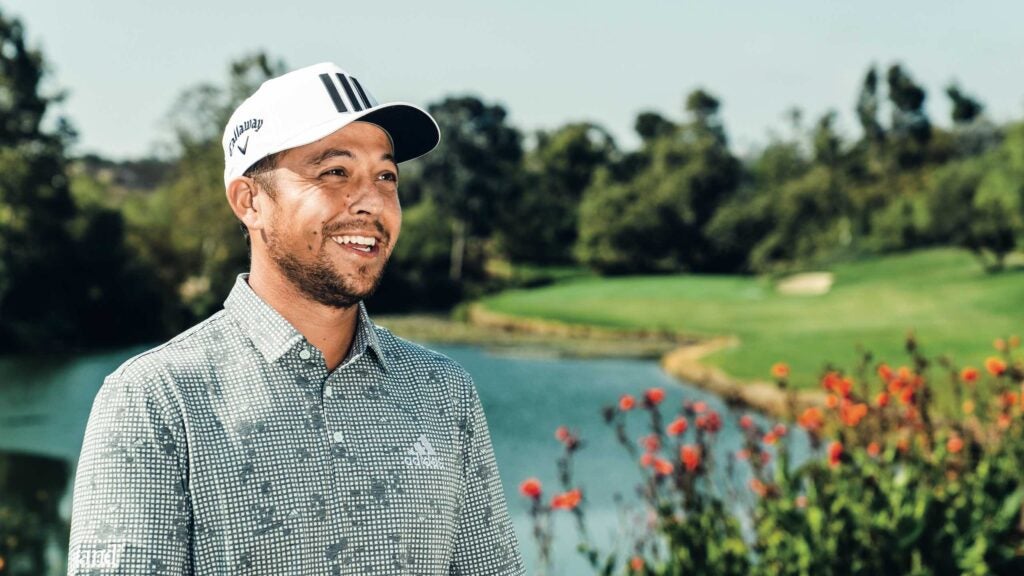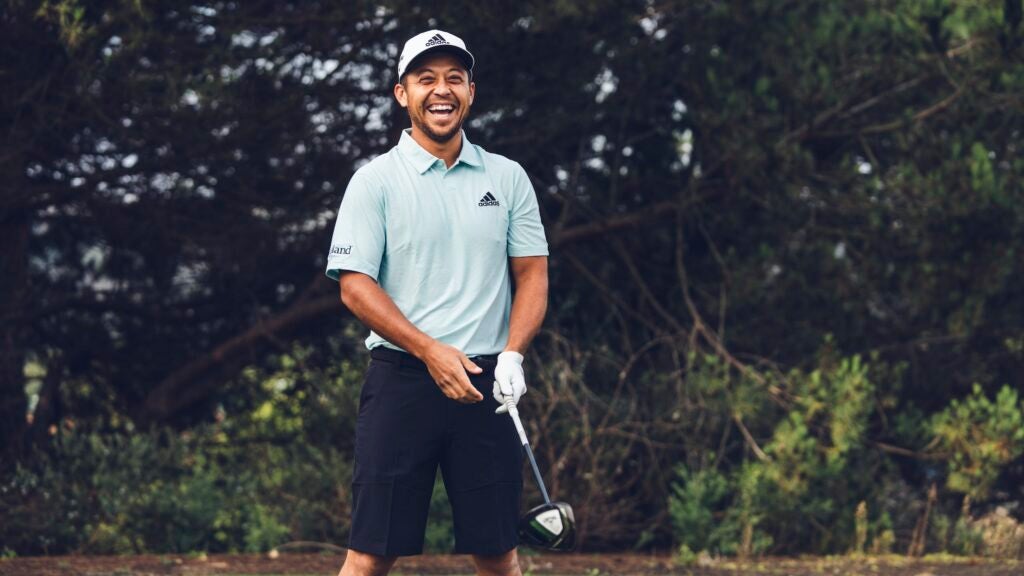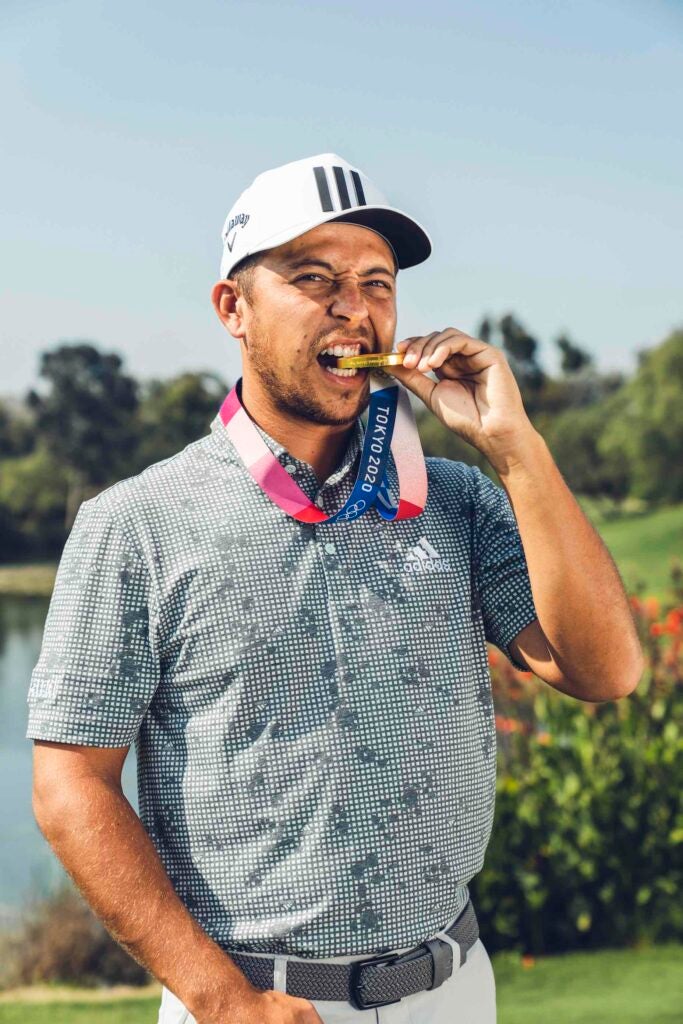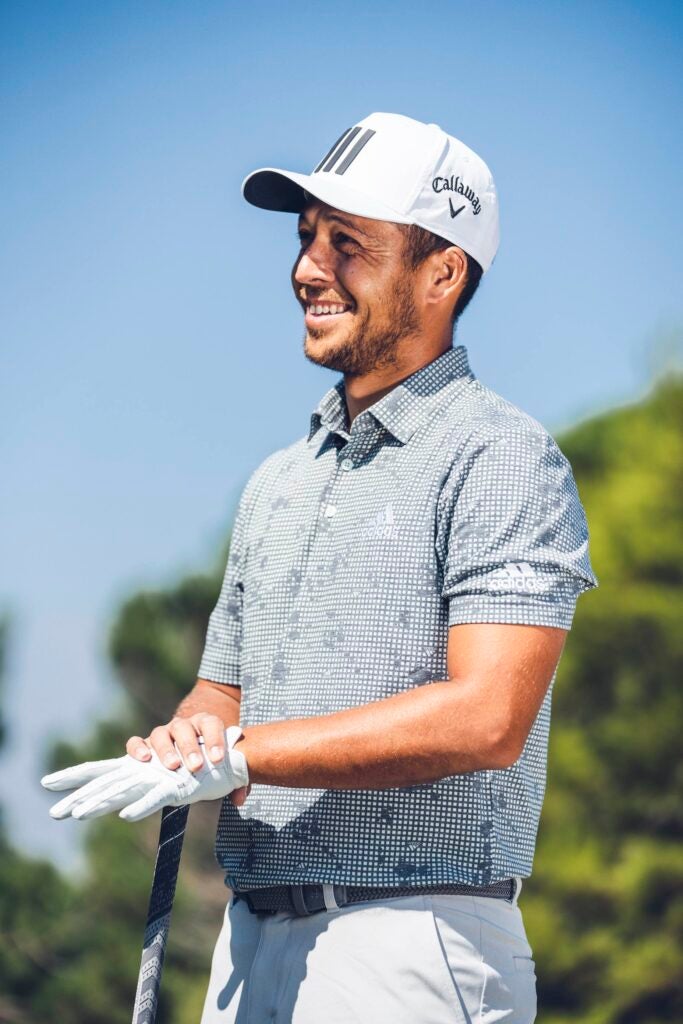ItŌĆÖs early evening in rural Haven, Wis. Team U.S.A. has clinched the Ryder Cup in record-setting fashion. TheyŌĆÖve doused Whistling StraitsŌĆÖ 18th fairway in champagne. And now, they traipse into the media center, a dozen players and their captain, in varying states of boozy dishevelment.
Front and center sits 27-year-old Xander Schauffele, Ryder Cup rookie. He has a twinkle in his eye after winning three of four matches on the week and celebrating accordingly. He has a microphone in his left hand, a large cigar in his right and an ear-to-ear grin across his face, the kind youŌĆÖll never see him flash in a tournament round. At one point, he looks down at his shirt, brushes cigar ash off the white stripe on his chest and delivers a particularly honest assessment.
ŌĆ£I had no idea we had [to do] media after all of that,ŌĆØ he says.
A year ago, nobody would have imagined that Schauffele ŌĆö known mostly for playing top-tier golf and flying under the radar ŌĆö would be an emotional centerpiece for the American squad. Nor that heŌĆÖd be chugging beers in front of a roaring crowd or cruising feet-first down a Whistling Straits hillock as if he were headed down a frat party Slip ŌĆÖnŌĆÖ Slide. But SchauffeleŌĆÖs story is full of surprises. Just donŌĆÖt expect him to be the one to tell it.
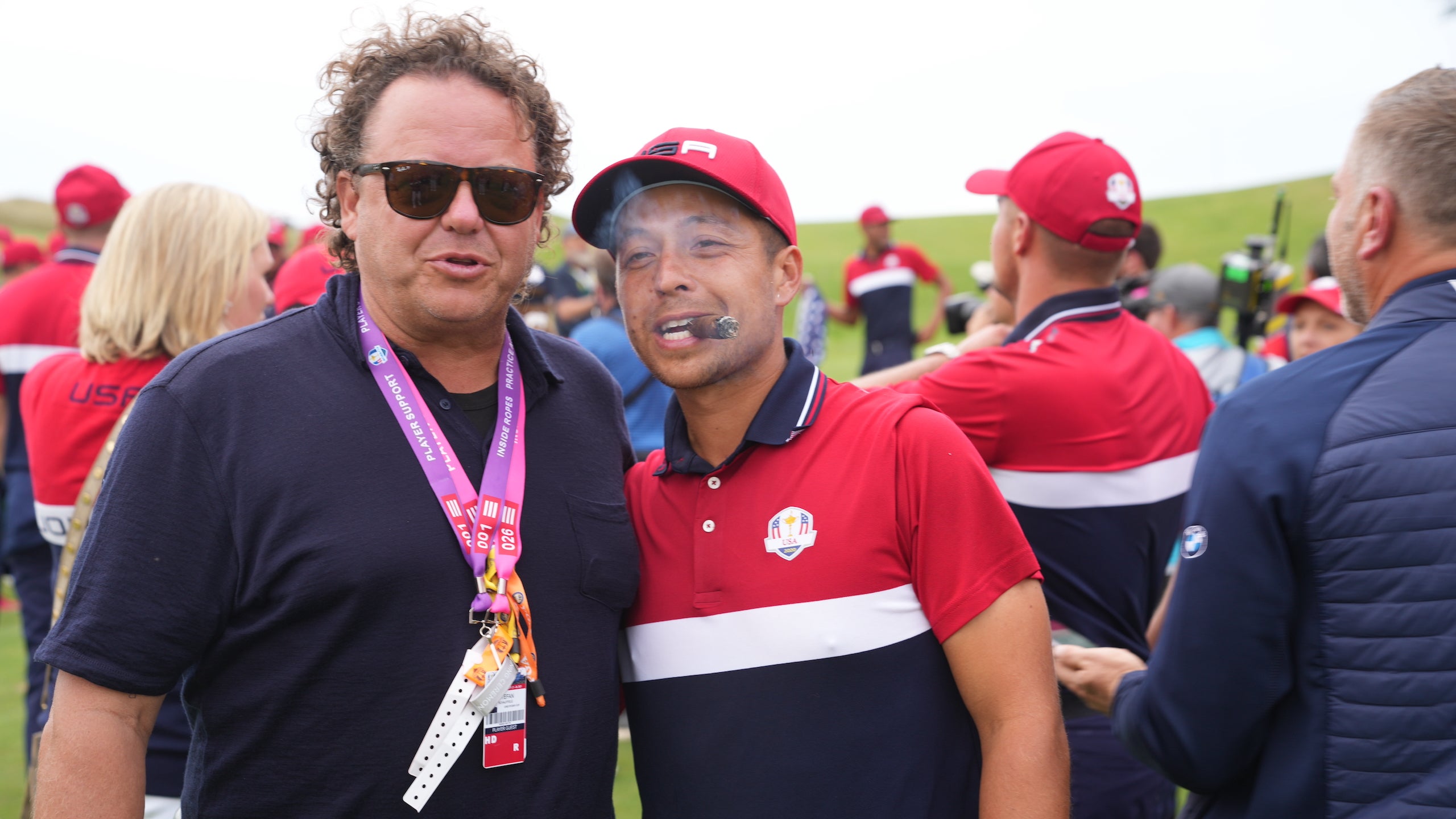
Xander, the Son.
He was born in San Diego in 1993 to a French-German father and Taiwanese-Japanese mother. At this summerŌĆÖs Olympic Games, his gold medal counted double: the fulfillment of a dream for himself and his dad. Decades earlier in Germany, before a head-on collision with a drunk driver ended his athletic career, Stefan Schauffele was an aspiring decathlete. His years of grinding for the German national team left him with at least one essential gift: the ability to evaluate talent. He insists his youngest son, Xander, overflowed with it.
ŌĆ£At first, I thought he was going to be a soccer player, because I had never seen anyone, at age four, at his level. Shoulder-high volleys. Left foot. Right foot,ŌĆØ Stefan recalled recently. He, along with his eldest son, Nico, and a few other members of XanderŌĆÖs intentionally tight inner circle were with the golfer at a Callaway promo shoot in Southern California a few weeks before the Ryder Cup.
ŌĆ£I had to pinch myself to make sure I was seeing this,ŌĆØ Stefan continues, ŌĆ£because every parent is delusional, right?ŌĆØ (XanderŌĆÖs mother, Ping-Yi, doesnŌĆÖt do interviews, but he and Nico will tell you, rolling their eyes, that Stefan speaks plenty for both of them.)
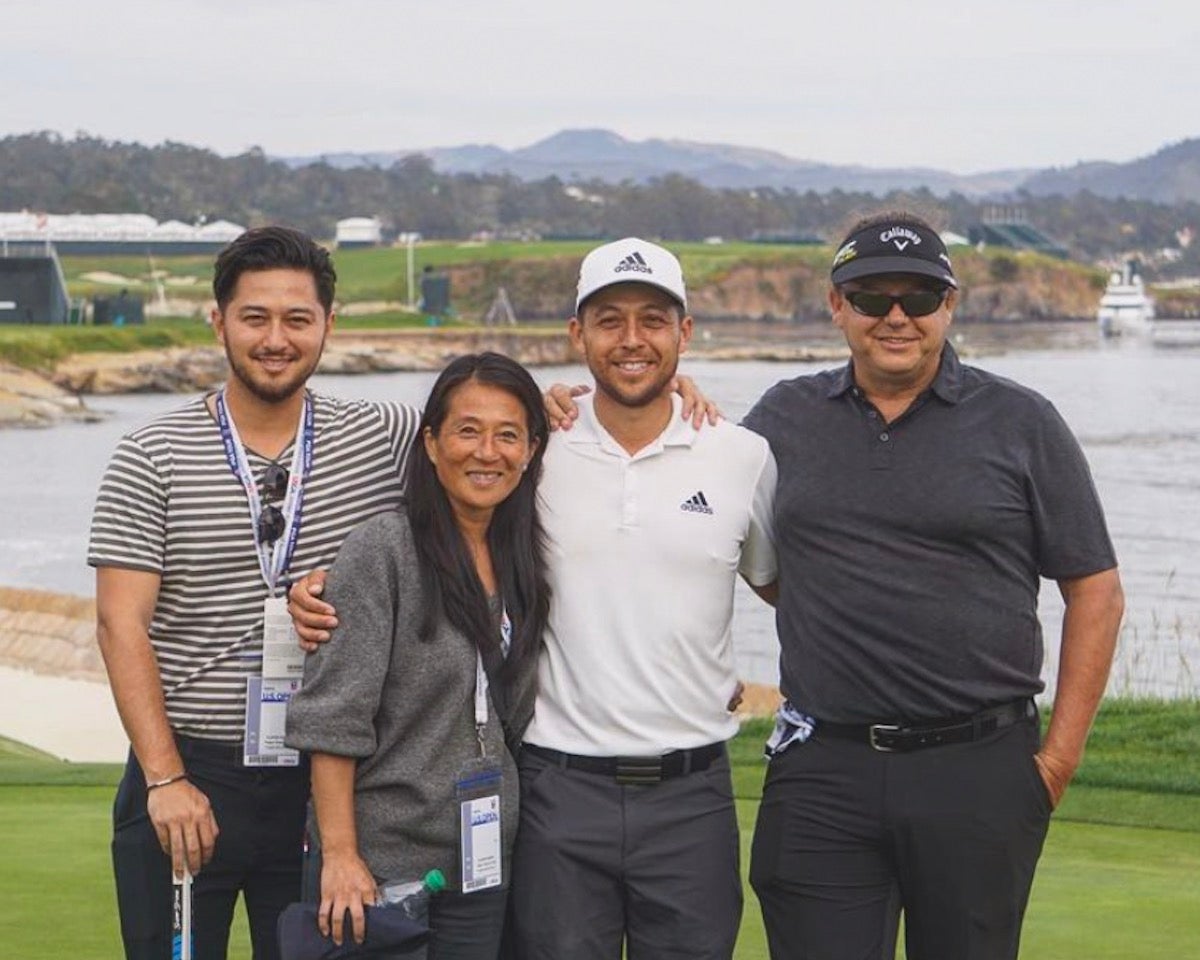

When it came to nurturing the athletic skills of young kids, Stefan admired the approach Walter Gretzky took with his son, ice hockey legend Wayne Gretzky. ŌĆ£Walter was great,ŌĆØ Stefan says, then quotes him. “‘That bastard,’ he said, ŌĆśmust have emptied out 100 car batteries shining lights on that bloody pond. I couldnŌĆÖt get him off the ice, day or night. And thereŌĆÖs one truth. One basic truth: If your kid has it, thereŌĆÖs nothing you can do to stop him, and if he doesnŌĆÖt, thereŌĆÖs nothing you can do to make him.'”
There are aspects of the Schauffele origin story that sound like tall tales, but all are true. At his sonsŌĆÖ birthday parties, Stefan would have Xander, Nico and their friends dress in suits, sip expensive cognac and smoke fine cigars ŌĆö beginning at age 12. San DiegoŌĆÖs junior golf scene teems with talent, but at age 16, at the first college-sponsored golf clinic he participated in, Xander began hitting balls and every coach in attendance gravitated to his stall. Later that year, he played a three-hole stretch at nearby Barona Creek Golf Club in six under par, going albatross-birdie-eagle in a warm-up round for a U.S. Open local qualifier, the only known instance of that three-hole feat in golf history.
Some parents would hesitate to admit theyŌĆÖd put pressure on their athletic kids, but by the time Stefan began to grasp the college recruiting process there wasnŌĆÖt any wiggle room. “I told him, ‘Xander, I cannot pay for college,'” he remembers. “‘IŌĆÖm bankrupt. I paid for your brother, and I just donŌĆÖt have money left. You need to get a scholarship. You must perform.'”
Under the gun, Schauffele finished top three in each of his next three events, against SoCalŌĆÖs stiffest competition, earning a scholarship to Long Beach State in the process. “ThatŌĆÖs why he performs like he does in the majors,” Stefan says, referencing the six top-fives and nine top-10s his son has logged in 18 major starts. “Whenever he gets put under pressure, he increases his focus and he plays better. There is no other explanation for it.”
As a Brother,
Xander aroused both the envy and the empathy of Nico, three years his senior.
ŌĆ£Do I remember him having talent? How could I not?ŌĆØ Nico says, laughing. He helps manage XanderŌĆÖs social channels, his communications and his foundation work. ŌĆ£He was so good at golf that I quit. Anything that involved a ball, anything round, he was instantly the best.ŌĆØ
Still, it wasnŌĆÖt always easy. High school golfers arenŌĆÖt the big men on campus, no matter how well they compress their irons.
ŌĆ£There were definitely sacrifices,ŌĆØ Nico says. ŌĆ£I remember specifically, it was in high school that Xander decided he wanted to become a professional golfer, so he was never at parties or just hanging out. IŌĆÖd see his friends and theyŌĆÖd say, ŌĆśWhereŌĆÖs your brother?ŌĆÖ And IŌĆÖd say, ŌĆśHeŌĆÖs at the driving range.ŌĆÖ Now when I see them, theyŌĆÖre like, ŌĆśOh. I guess that actually happened, huh?ŌĆÖŌĆØ
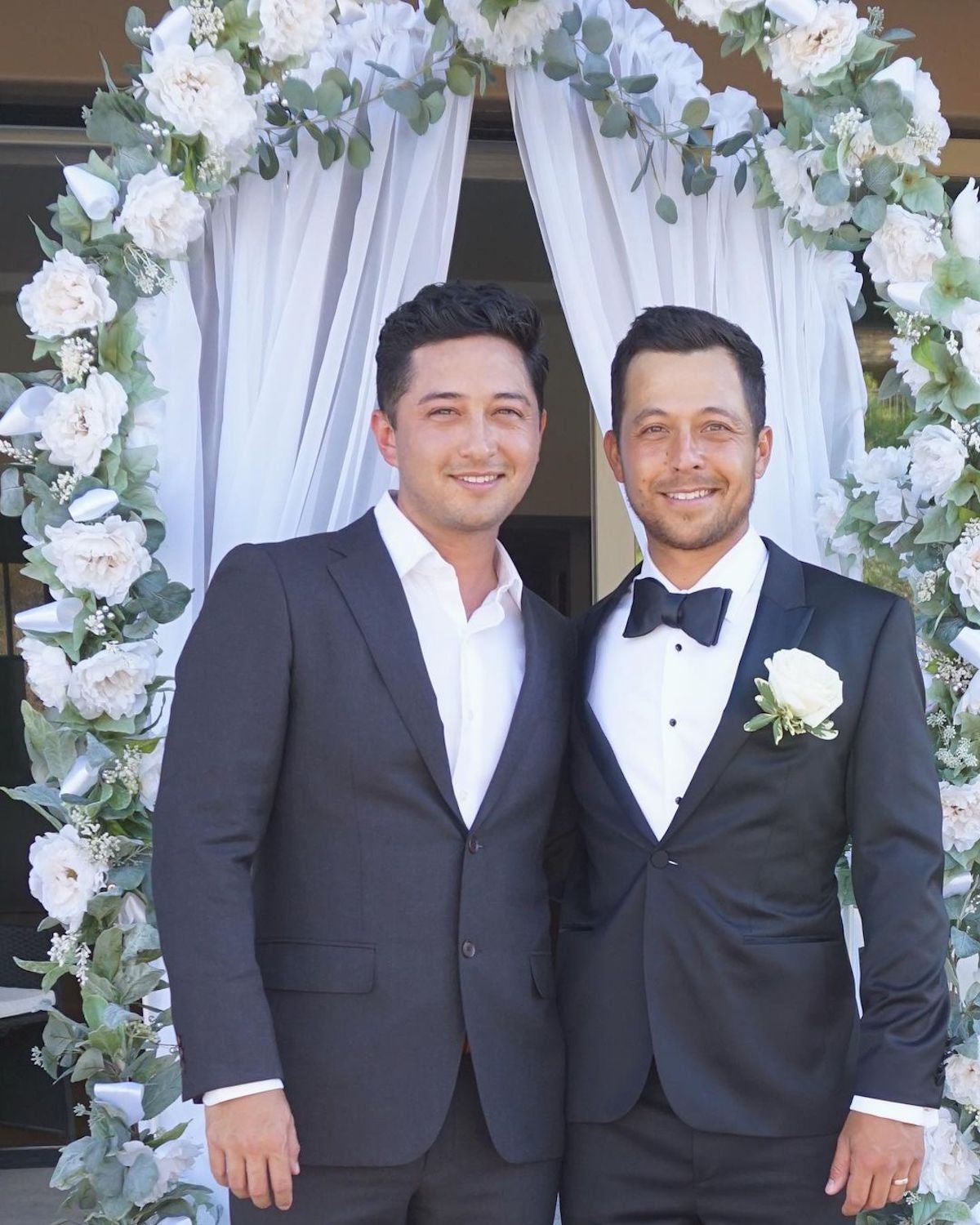
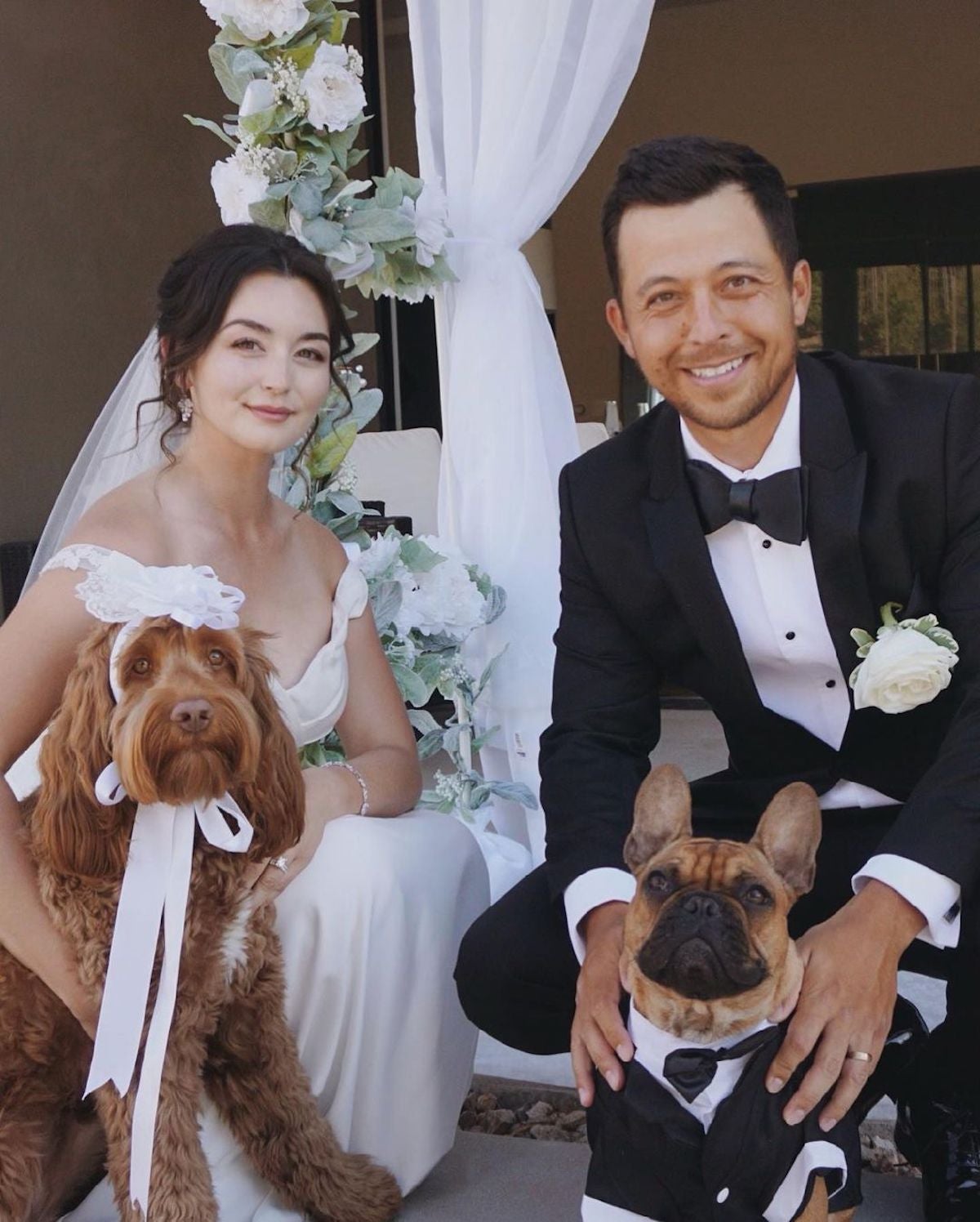
As a Husband,
Schauffele is proving to himself ŌĆö and to his wife, Maya ŌĆö something he once worried was impossible.
ŌĆ£I never thought I could play golf at a high level and care about someone else besides myself,ŌĆØ he says between setups at the photo shoot. ŌĆ£Golfers are super selfish, and we have to be. ThereŌĆÖs so much depending on our individual performance. But itŌĆÖs pretty special to care for someone else that way, and to have that someone care for you.ŌĆØ
Xander and Maya Lowe met in 2014 as students at San Diego State, where Schauffele transferred after his freshman year. They married in July of this year at their new home in Las Vegas after relocating there just a few months earlier. (They split time between Vegas and San Diego.) Exactly eight family members, one officiant and the coupleŌĆÖs two dogs (dressed in formal wear) attended. The small ceremony was MayaŌĆÖs idea.
ŌĆ£Normally, I have a superpower when it comes to crying, but that day?ŌĆØ Xander says. ŌĆ£Absolute waterworks.ŌĆØ
Maya doesnŌĆÖt crave the spotlight that typically accompanies the life of a Tour wife. SheŌĆÖs built a career in healthcare administration. SheŌĆÖs not on Instagram. And she didnŌĆÖt grow up playing or watching golf. When she and Xander began dating, she didnŌĆÖt even know he played the game.
She knows it now. ŌĆ£IŌĆÖve gotten the lingo down,ŌĆØ Maya said on a walk toward the Whistling Straits clubhouse, just minutes after her husband and his Tour pal Patrick Cantlay had closed out a foursomes match at the Ryder Cup.
ŌĆ£Have you?ŌĆØ asked Xander, who was walking beside her. ŌĆ£WhatŌĆÖd we make on that hole?ŌĆØ
ŌĆ£You won!ŌĆØ she said.
ŌĆ£We won that hole with aŌĆ”ŌĆØ
She paused.
ŌĆ£ItŌĆÖs three letters.ŌĆØ
ŌĆ£Par!ŌĆØ
He slung his arm around her. ŌĆ£WeŌĆÖre getting there,ŌĆØ he said.
As a Friend,
Schauffele demonstrates confidence and generosity in equal measure. Kevin ŌĆ£TechŌĆØ Techakanokboon is on the phone from Q-School in Illinois, and heŌĆÖs eager to share. Tech remembers their first year at Long Beach State, when the golf team was going around the room, making self-introductions, sharing brief bios and what each player hoped to bring to the team.
ŌĆ£We had this senior,ŌĆØ Tech says, ŌĆ£and he goes, ŌĆśIŌĆÖm Kevin Roy, from Syracuse, N.Y., and IŌĆÖll be your teamŌĆÖs leader.ŌĆÖ And the next guy goes, ŌĆśIŌĆÖm Xander Schauffele, IŌĆÖm an incoming freshman, and since we already have a leader for the team, I guess IŌĆÖll just be your scoring leader.ŌĆÖ We were all looking around at each other like, Who does this guy think he is?! But thatŌĆÖs the mentality Xander has always had. He had such a firm belief in this process, and he was right.ŌĆØ
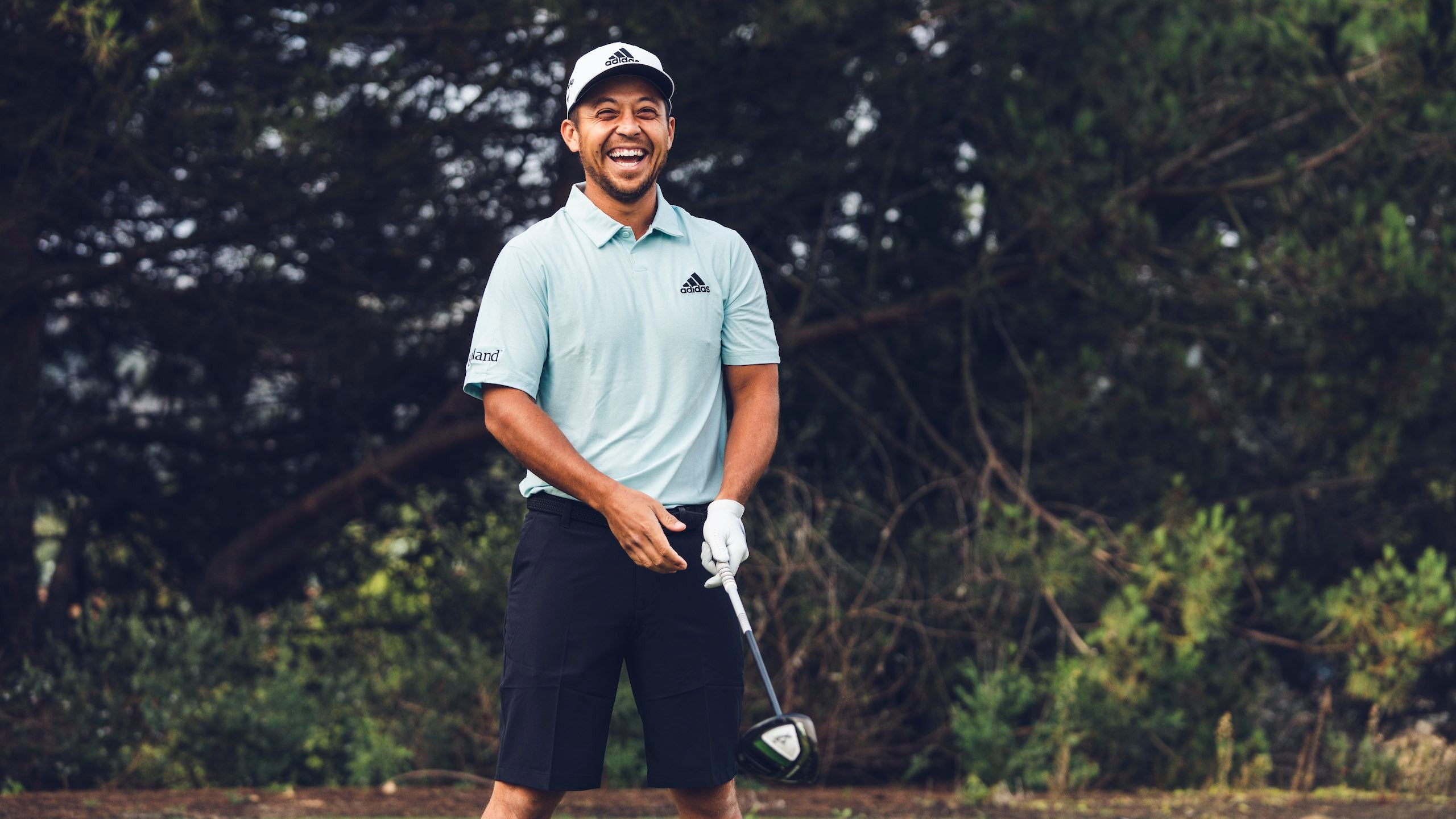
The two stayed in touch even after Schauffele transferred. Both turned pro. Xander made his way through the Web.com tour and, in 2016, qualified for the PGA Tour. Tech went to play in Asia but remembers coming home one Christmas in desperate need of a couch, a friendly face and a swing analysis.
ŌĆ£Xander was in his first year on Tour,ŌĆØ he says. ŌĆ£He was prepping for the upcoming season, and he was still so patient. I crashed at his apartment, with him and Maya, and he just always had time for me. I would love the world to know how good a guy he is.ŌĆØ
As a Competitor,
Schauffele doesnŌĆÖt have an off switch, and he hates to lose. ThatŌĆÖs partly what has propelled him to the top five in the world. ThatŌĆÖs what made sealing the deal at the Olympics in Tokyo feel so good. He stresses just how satisfying it was to protect a lead that Sunday.
It also makes him a formidable opponent in money games at home. When heŌĆÖs in Vegas, that means connecting with any number of pros in town, including friends like Alex Kang or Kurt Kitayama. In San Diego, thereŌĆÖs a crew that includes Phil Mickelson and Charley Hoffman, as well as aspiring young pros and low-handicap members of several San DiegoŌĆōarea clubs.
Eric Ingersoll, a plus-handicap and a regular at The Farms Golf Club in Rancho Santa Fe, relishes those games.
ŌĆ£XanderŌĆÖs a f—ing killer,ŌĆØ he says. ŌĆ£You saw what he was like at the Olympics. Stone cold. Sure, heŌĆÖs a little more relaxed when we play, but itŌĆÖs the same exact game. In his routine. One shot at a time. Relentless. And he never plays bad. Ever.ŌĆØ
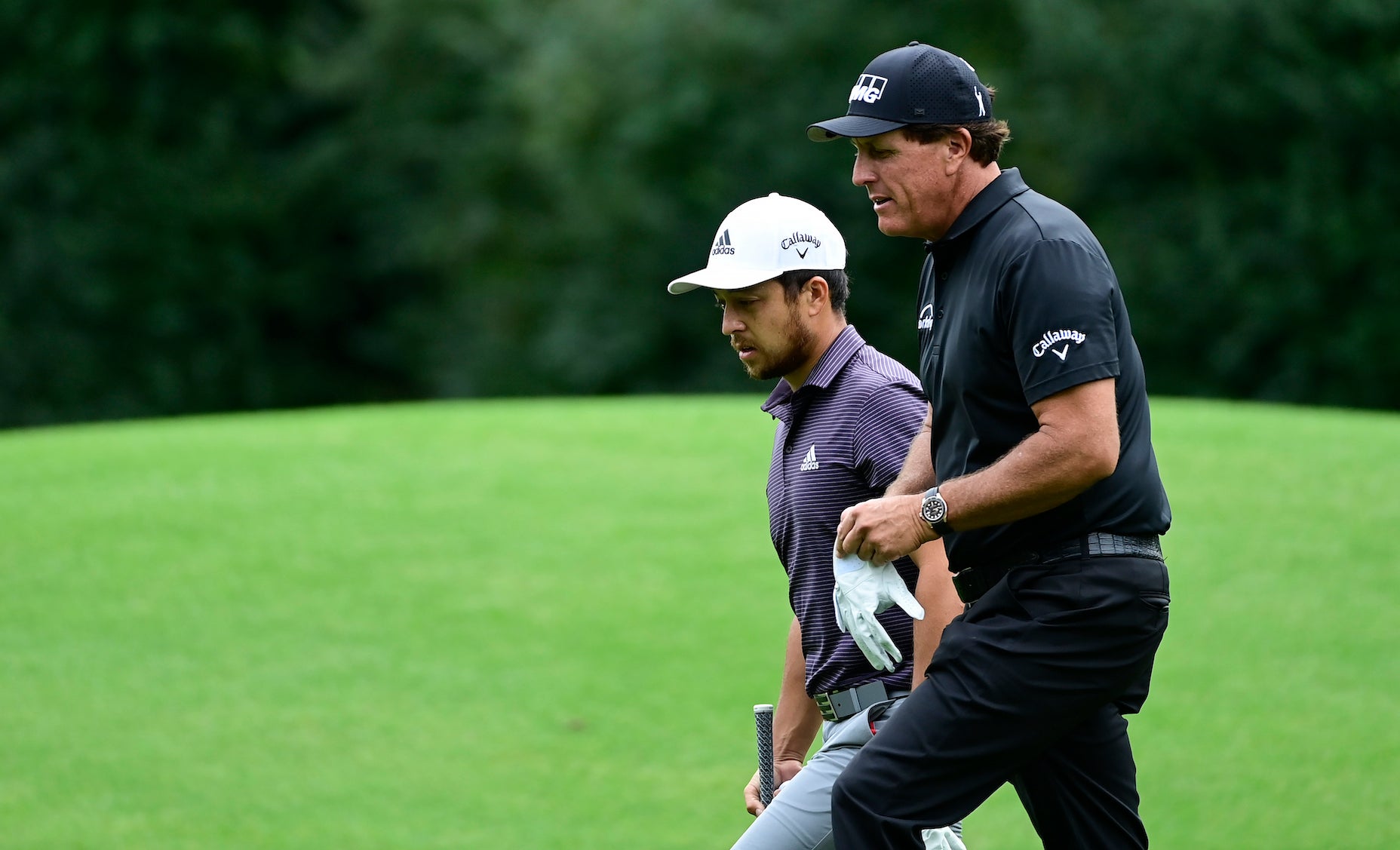
After his 2021 PGA Championship win, Mickelson shared one story from the TourŌĆÖs Covid hiatus, when he and Schauffele played a string of matches at The Farms. The first round Xander shot 64 and gave Mickelson what he admitted was ŌĆ£a pretty good beating.ŌĆØ Lefty wanted a rematch. Schauffele shot 63.
Mickelson wanted one more crack, but Schauffele went way up in that match too. With three holes to play, Mickelson pressed on the 220-yard 16th, teed up his ball and hit it to four feet.
ŌĆ£Since itŌĆÖs match play, I let him know that I could make him re-hit,ŌĆØ Schauffele remembers now. ŌĆ£But because he was getting his butt kicked, I figured I would let him hit it to four feet and not make him re-hit.ŌĆØ
Schauffele grabbed 6-iron and hit a slight pull that brought water into play ŌĆö but also headed straight for the flagstick. ŌĆ£It fell right in line with the pin, then trickled in,ŌĆØ he says with a grin. ŌĆ£ThereŌĆÖs a little mound behind the tee box, and [Phil] sat there like this, looking down at the ground, shaking his head.ŌĆØ
SchauffeleŌĆÖs ace capped a round of 62.
Mickelson was whipped ŌĆö and thoroughly impressed. “I went back and talked to [his wife] Amy,” he said later, ŌĆ£and IŌĆÖm like, ŌĆśI donŌĆÖt know how IŌĆÖm going to beat this guy. HeŌĆÖs probably playing the best of any player in the world right now.'”
As a Teammate,
first at the 2019 Presidents Cup and then at this yearŌĆÖs Ryder Cup, Schauffele has shown Patrick Cantlay just how nice it can be to have him on your side. The duo went 4-2-0 across the two competitions. More importantly, theyŌĆÖve become close friends and sparring partners; they play a practice round together every Tuesday at Tour events.
ŌĆ£I donŌĆÖt think either of us would have gone out of our way to be friends with the other, but spending that time together, we realized we really got along,ŌĆØ Cantlay told me after a Ryder Cup practice round. The bond makes sense ŌĆö both obsess over golf minutiae, let their clubs do the talking and reject what each of them separately refers to as the ŌĆ£attention-seeking behaviorŌĆØ of social media and brand-building in todayŌĆÖs sports world.
ŌĆ£X is incredibly smart, and heŌĆÖs incredibly conscientious,ŌĆØ Cantlay says. ŌĆ£HeŌĆÖs someone who probably brings out the best in me. HeŌĆÖs more positive, and he has a way of being lighter as opposed to me being serious. Yet, heŌĆÖs quiet and reserved, so we have that bond too. He balances me out a little bit.ŌĆØ
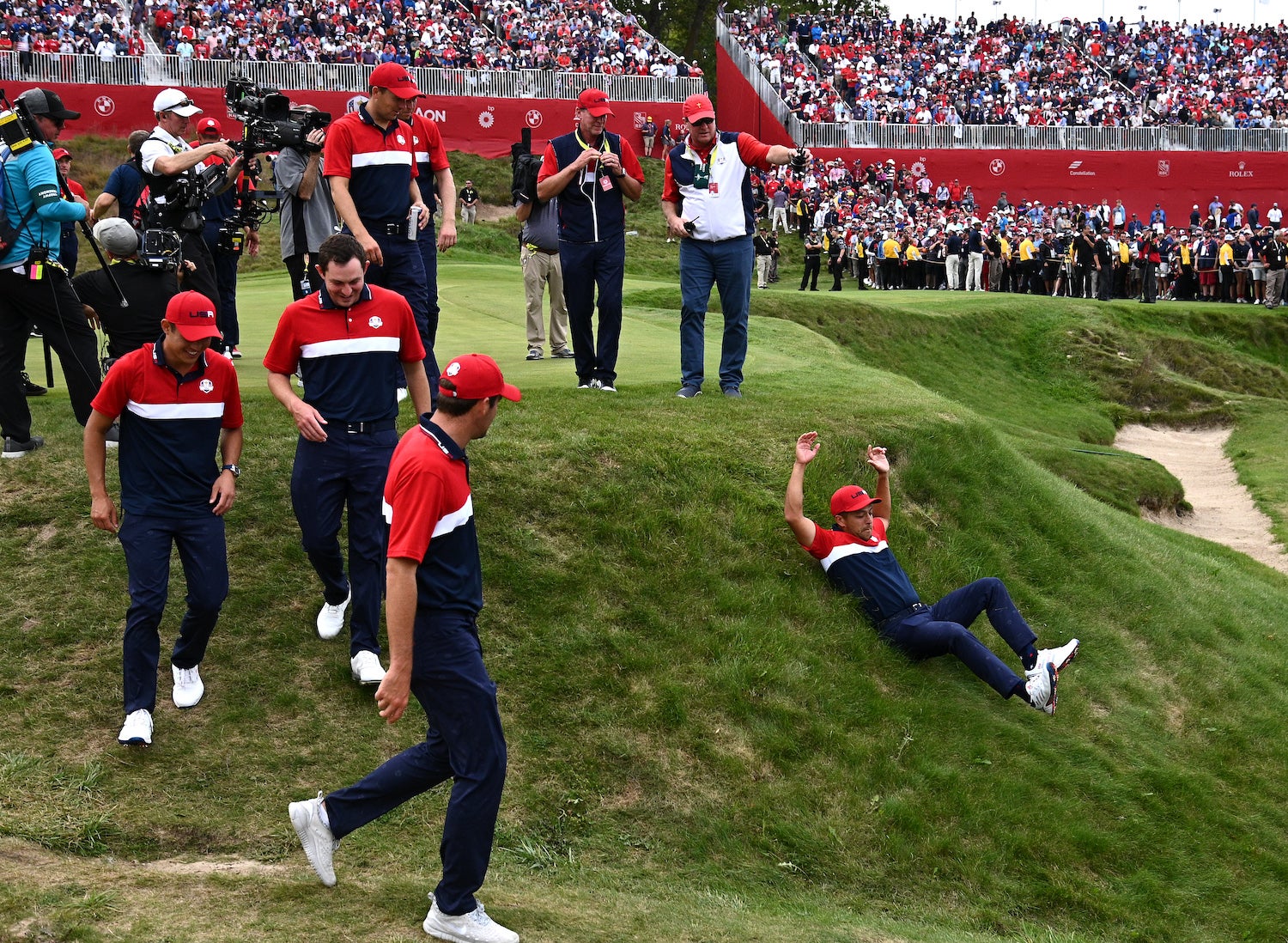
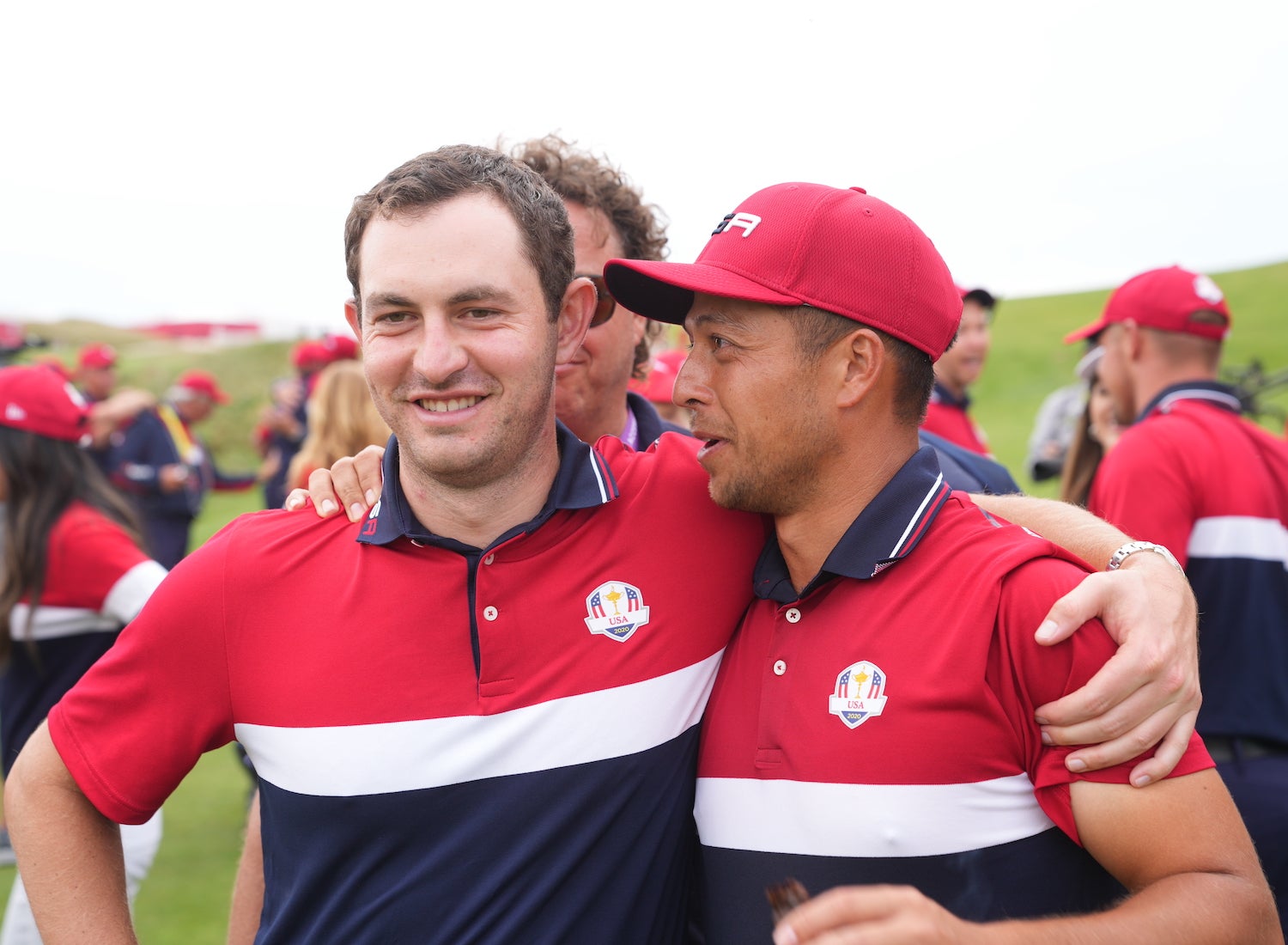
As a Client,
SchauffeleŌĆÖs unparalleled ability to filter and focus amazes his agent, Ross Chouler.
ŌĆ£HeŌĆÖs so present,ŌĆØ Chouler says. ŌĆ£I see other guys and how their minds get active under pressure. Not his. He lets things go when he should, on and off the course. When heŌĆÖs hitting a shot, he has his routine, and he does not get out of that routine. ItŌĆÖs incredible. He and Stefan talk about CEA: Commit. Execute. Accept. Whatever happens, happens.ŌĆØ
As a Golfer,
Schauffele is in a better place than heŌĆÖs ever been. ŌĆ£I still get excited to play, to compete, like I did when I was a rookie,ŌĆØ he says. ŌĆ£But when youŌĆÖre a rookie, you know the top-10 players are there, and they know the course better than you. Now, IŌĆÖm like, ŌĆśIŌĆÖve played this course before. Why not me?'”
He still gets lost in the process sometimes. HeŌĆÖll lose track of time playing chipping games into the evening alongside Tech. Every day is a chance to improve; the job is never finished. ThatŌĆÖs part of the system heŌĆÖs grown up in, and the system is effective.
ŌĆ£On the one hand, golf is work,ŌĆØ Schauffele says. ŌĆ£On the other hand, itŌĆÖs not my fault that I love my job.ŌĆØ
ŌĆ£What heŌĆÖs got ŌĆö his small circle ŌĆö is enough,ŌĆØ says Tech. ŌĆ£HeŌĆÖs got everything worked out. Some people, when they have success, when they start to make money, they start doing all these other things. Xander just says, ŌĆśIŌĆÖm just trying to get good at this one thing.'”
ŌĆ£He hasnŌĆÖt changed anything at all,ŌĆØ Stefan marvels. ŌĆ£He doesnŌĆÖt even have a new car. He still drives his Toyota Camry and for a good reason: It makes him happy. He says it reminds him of how quickly this could all be gone.ŌĆØ
Gone? No chance. ItŌĆÖs just getting started.



